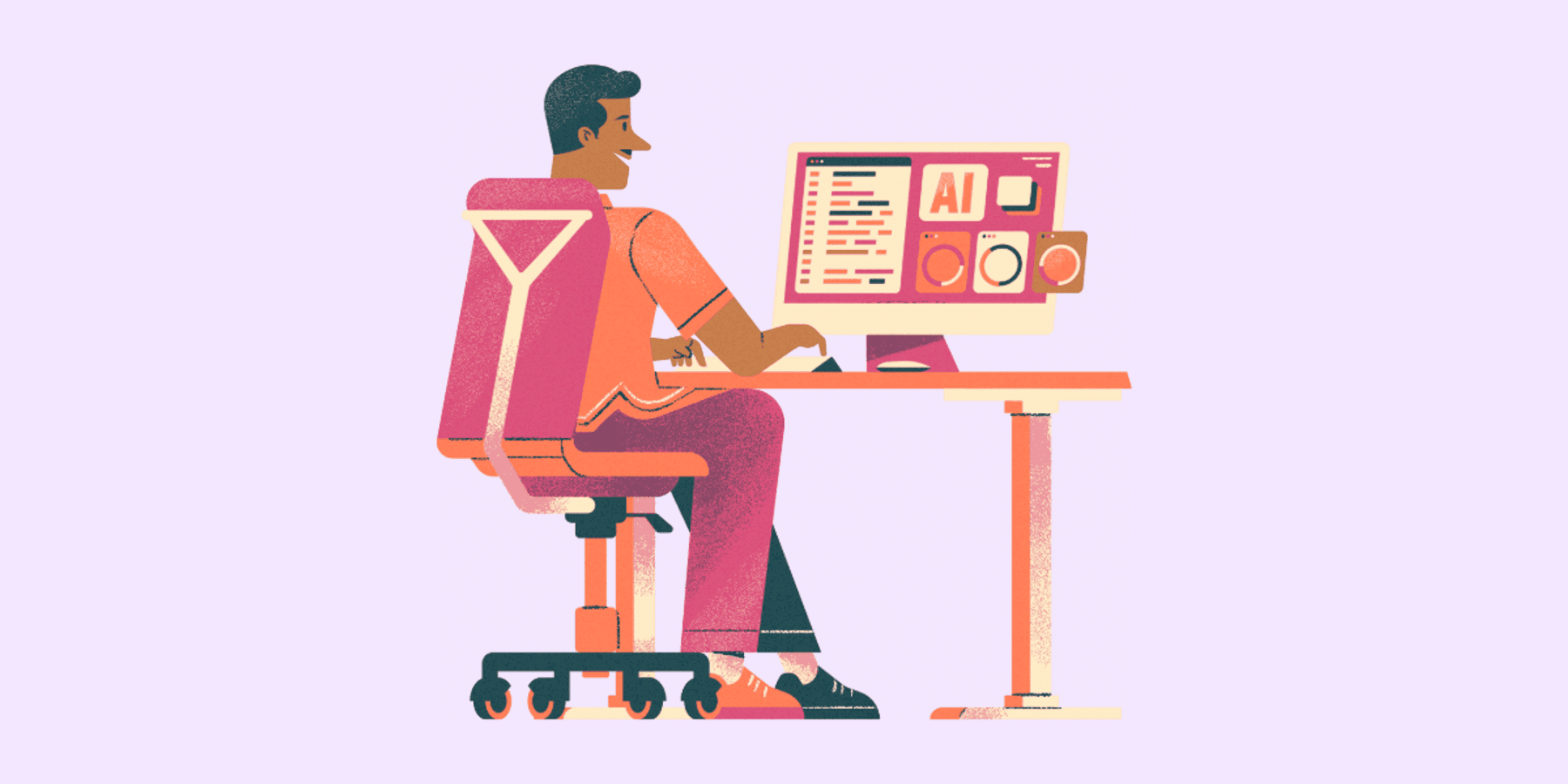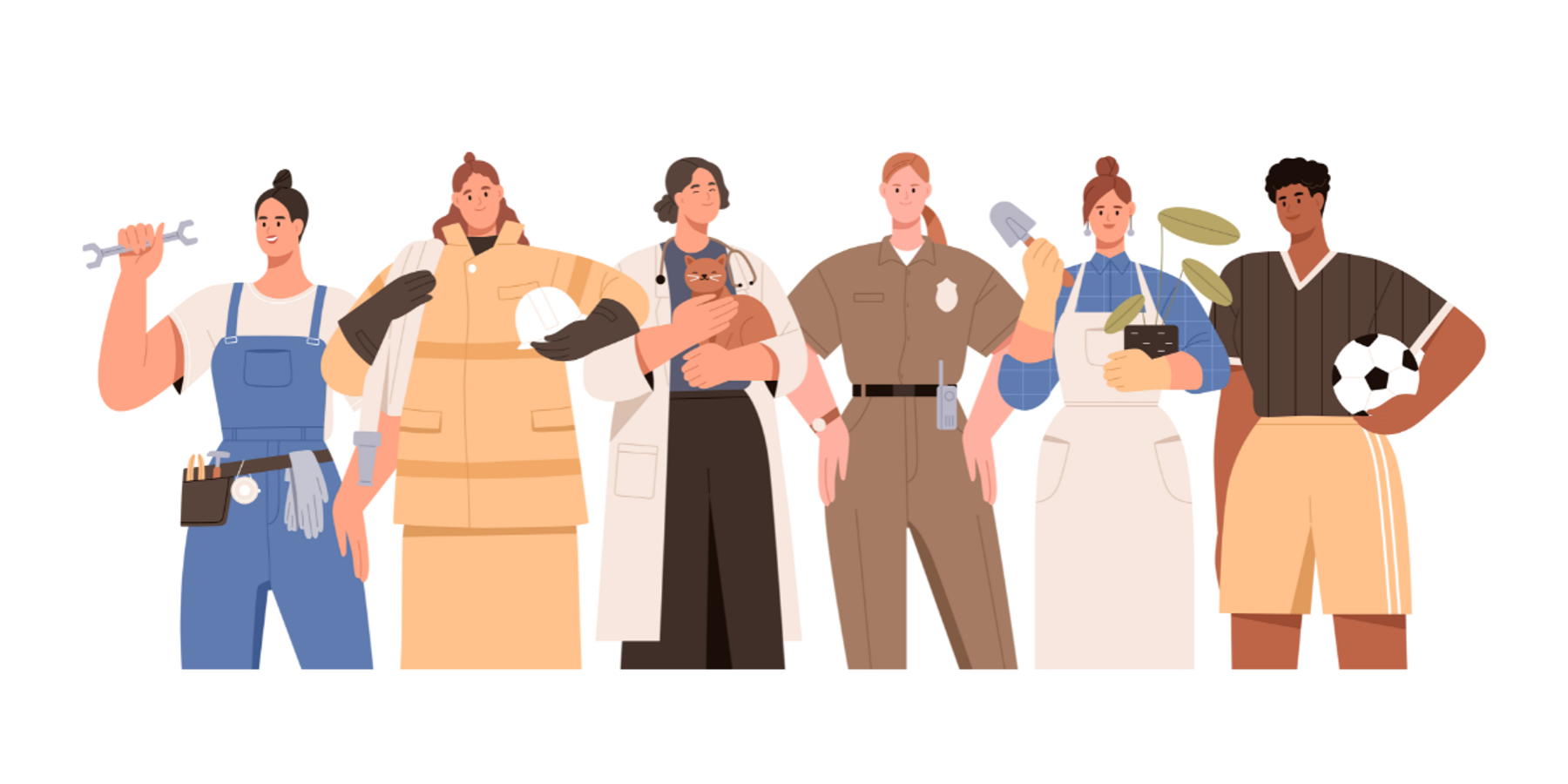When Denise L’Hirondelle first entered the world of tech, she came from a background as unconventional as they come. Having no formal computer science education, Denise started by tinkering with computers out of necessity — her early years were defined by learning Linux and piecing together secondhand devices just to keep them running.
“I couldn’t afford new computers,” Denise says, “so I learned everything I could to make what I had work.” Eventually, her constant conversations about tech landed her a contract to build a website. “I’d talk about computers so much that people started asking if I could help with their tech projects,” she laughs.
At first, this lack of a traditional background didn’t faze her. “I felt like I had nothing to lose. There was no expectation, so I felt free to just take risks.” In those early roles, she dove headfirst into software development and wasn’t intimidated by titles or expectations.
But as her career progressed and she transitioned into more established roles, Denise began to feel out of place. She recalls receiving the title of senior software developer at Autodesk, a global leader in design and make technology — and self-doubt hitting her like a ton of bricks.
Despite the uncertainty, Denise pressed on and soon had a revelation that would shape her professional identity: These feelings didn’t have to be roadblocks. Instead, they could become a source of strength and growth. We sat down with Denise to uncover her approach to overcoming imposter syndrome in the tech industry and explore what’s possible when we confront our insecurities head-on.
Small wins, big impact
Denise’s journey to overcoming imposter syndrome began with practical steps that offered an immediate sense of progress. She knew that by focusing on growth through continuous learning and building connections, she could start shifting her mindset — and it worked.
In the evolving technology industry, Denise has come to view learning as both a skill and a means for staying ahead of the curve. “Any kind of tech job is going to be changing all the time. The tool that you're using today is never going to be the same one that you're using in five, 10 years from now,” she reflects.
By staying curious, she’s built confidence in her adaptability. “Pick the skill that’s relevant, and let go of the fear of missing out,” she advises, recognizing that, in the end, it’s about building a meaningful foundation rather than trying to master every tool.
Networking, too, has become essential in her toolkit for managing self-doubt. “When you’re stuck in your own head, it’s easy to spiral. Talking things out with others brings perspectives you couldn’t have imagined on your own,” she shares, adding that these conversations often validate her skills and help her recognize strengths she hadn’t seen in herself.
An employer that’s in your corner
As Denise’s role at Autodesk evolved, she began to look outward for support and mentorship that could provide a longer-term foundation for growth. She found that by leaning on workplace resources, she could manage self-doubt with a newfound sense of stability.
Autodesk’s coaching program benefit, Bravely, became a space for Denise to gain guidance from mentors who reminded her that personal growth isn’t about perfection. “The support here is incredible,” she notes. “Having access to mentors who have decades of experience and can share strategies — that’s huge.”
This supportive culture is mirrored in her team dynamics as well, where Denise’s managers encourage her to work through challenges head-on. “My managers have been great about letting me vent, but they don’t let me use self-doubt as an excuse. They hold me accountable, and that’s helped me see my own strength more clearly,” she reflects.
Embracing the art of learning through mistakes
The most profound lesson Denise has come to embrace, however, has been one that took time to uncover.
After years of striving for progress and stability, she’s come to see mistakes as valuable teachers, reframing self-doubt not as a hindrance but as an essential part of growth. Looking back on her early career, she remembers the freedom she felt to take risks, a mindset that stemmed from a sense of “nothing to lose.” Now, she channels that early courage into her work, embracing setbacks as stepping stones to resilience.
“Good decisions come from experience, and experience comes from bad decisions,” she quotes Mark Twain, reflecting on how this perspective has reframed her approach to self-doubt, allowing it to become a guide rather than an obstacle.
“Every mistake adds to my knowledge,” she notes. “When I lean into challenges, even if I don’t get everything right, I’m building something that will serve me later.”
This openness to learning through setbacks has empowered Denise to take on greater roles, like her current position as the Global Lead with Autodesk’s Indigenous employee resource group, Autodesk Indigenous Network (AIN), with more trust and perspective.
“I am still full of doubt,” she admits, “and so I don’t say to myself, ‘Okay, if I pull this initiative off perfectly with AIN, then everything is going to be great,’ because that puts too much pressure on me. Instead, I just view it as practice. And, in a sense, that takes the burden away — because all I’m doing is practicing.”
5 tips for overcoming imposter syndrome
Over the years, Denise has developed a set of guiding principles to keep imposter syndrome in check. If you find yourself in a phase of self-doubt or critique, Denise encourages you to follow these five strategies to move forward with greater confidence.
- Limit social media: “Platforms like LinkedIn and Instagram can make everyone else’s life look perfect. Limit your exposure and focus on your own journey... If you need a reality check, visit the ‘LinkedIn Lunatics’ subreddit for a laugh.”
- Create time for honest reflection: “Whether it’s with a journal, a therapist, or even a chat with a friend, give yourself space to acknowledge those negative thoughts. Sometimes, setting aside five minutes to be real with yourself can make a huge difference.”
- Talk to people: “Get out of your own head. Speak to colleagues, mentors, or friends, and let them give you a reality check. People will see things in you that you don’t always see yourself.”
- Try the things you’re afraid of: “If you’re scared of taking on a new project or role, do it anyway. You’ll either succeed or you’ll learn something valuable. Don’t let fear stop you from moving forward.”
- Remember, life is practice: “This is one of the biggest lessons I’ve learned. We’re all practicing as we go through life. You’re never going to have it all figured out, and that’s okay.”
Denise’s journey reminds us that overcoming imposter syndrome isn’t about erasing self-doubt; it’s about learning to grow with it. In the tech industry, Denise chooses to embrace the unknown and trust in the value she brings — even when she doesn’t have all the answers.
You, too, can turn self-doubt into your greatest strength.
Want to join a workplace that empowers and uplifts its team members? Autodesk is hiring! Explore the career opportunities here.




